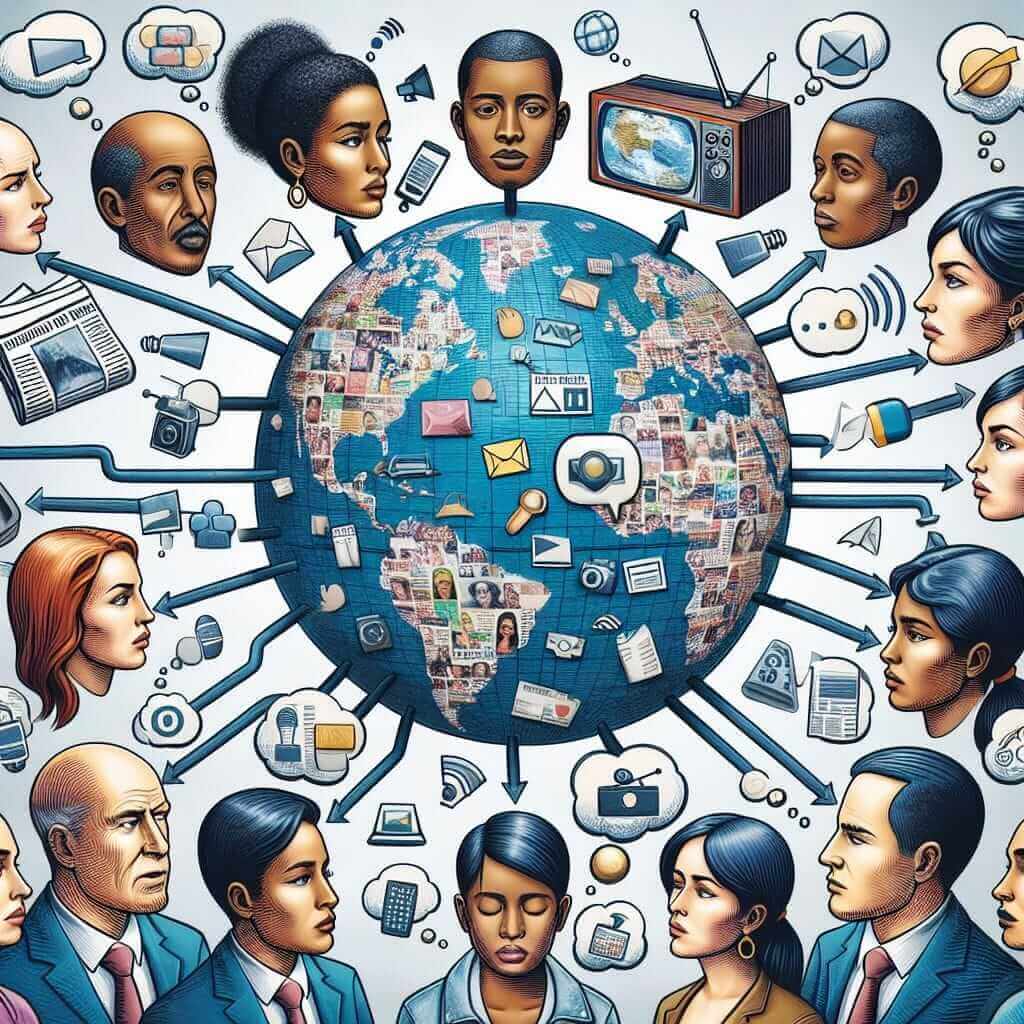“The role of the media in shaping public opinion” is a topic frequently appearing in the IELTS Writing Task 2, reflecting its significance in our increasingly interconnected world. This essay will delve into this topic, exploring how the media, encompassing traditional outlets like newspapers and television alongside digital platforms like social media, wield immense influence over the views and beliefs of the public.
To illustrate this, let’s consider three potential essay prompts:
- To what extent do you agree or disagree that the media is responsible for shaping people’s opinions?
- Discuss the positive and negative impacts of the media’s influence on public perception.
- With the rise of social media, analyze how the traditional role of the media in shaping public opinion has evolved.
Sample Essay: Analyzing the Media’s Role in Molding Public Opinion
Let’s select the first prompt for our model essay:
To what extent do you agree or disagree that the media is responsible for shaping people’s opinions?
Analysis of the Question
This question requires you to present a clear stance on the extent to which you believe the media shapes public opinion. You are expected to provide a balanced argument, acknowledging both the significant influence of the media and other factors that contribute to forming individual viewpoints.
Model Essay
It is undeniable that the media plays a pivotal role in shaping public opinion. While some argue that personal experiences and social circles hold greater sway, the pervasive reach and persuasive power of media outlets cannot be ignored. This essay will argue that the media wields significant, though not absolute, influence in molding public perception.
Firstly, the media acts as a gatekeeper, filtering and prioritizing the information disseminated to the public. By selectively highlighting certain events and perspectives, media outlets inevitably shape how individuals perceive the world. For instance, extensive coverage of a particular crime can lead to exaggerated public fear and influence policy decisions, even if the overall crime rate is declining.
Furthermore, the way information is presented, often imbued with subtle biases and emotional appeals, can significantly impact public opinion. A news story framed to evoke outrage or sympathy can sway viewers towards a particular viewpoint, regardless of its objectivity. The use of loaded language, evocative imagery, and selective reporting all contribute to this persuasive power.

However, it is crucial to acknowledge that audiences are not passive recipients of information. Personal experiences, upbringing, cultural values, and social networks all contribute to shaping individual beliefs and filtering the messages received from the media. Critical thinking skills and media literacy also play a vital role in enabling individuals to discern biases and form their own informed opinions.
In conclusion, while personal factors undoubtedly play a role, the media’s influence in shaping public opinion is undeniable. Through its gatekeeping function and persuasive techniques, the media holds the power to significantly influence public perception, albeit not in an absolute or unchallenged manner.
(Word count: 280 words)
Notes on the Essay
- Structure: The essay follows a clear structure, presenting a balanced argument with supporting evidence.
- Vocabulary: The essay uses a range of vocabulary related to media and influence, such as “pervasive reach,” “persuasive power,” “gatekeeper,” and “selective reporting.”
- Grammar: The essay demonstrates good grammatical control, using complex sentence structures and appropriate punctuation.
- Coherence and Cohesion: The essay flows smoothly, with clear transitions between paragraphs and ideas.
Challenging Vocabulary
- Pervasive (adjective) /pɜːˈveɪsɪv/: (of an idea or attitude) spreading widely throughout an area or group of people.
- Disseminate (verb) /dɪˈsɛmɪneɪt/: spread (something, especially information) widely.
- Exaggerated (adjective) /ɪɡˈzædʒəreɪtɪd/: represented as being larger, greater, better, or worse than it really is.
- Evoke (verb) /ɪˈvoʊk/: bring or recall to the conscious mind.
- Discern (verb) /dɪˈsɜːrn/: recognize or find out.
Conclusion
This essay exemplifies a well-structured and argued response to an IELTS Writing Task 2 question concerning the media’s role in shaping public opinion. Remember to analyze each question carefully, present a clear stance, support your arguments with relevant examples, and use a variety of vocabulary and grammatical structures to achieve a high band score.
Further exploration of this topic could include the impact of new media, the ethics of media influence, and the role of media literacy in navigating the information age.